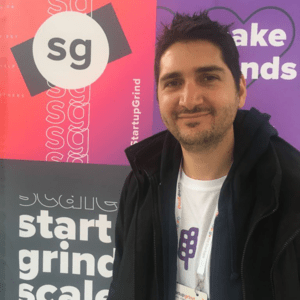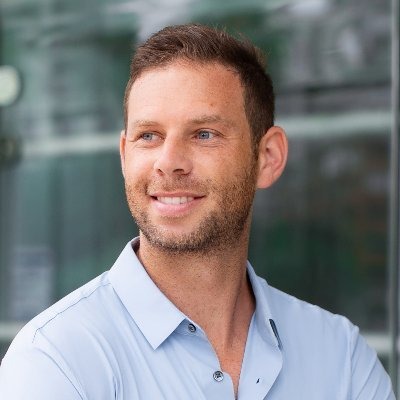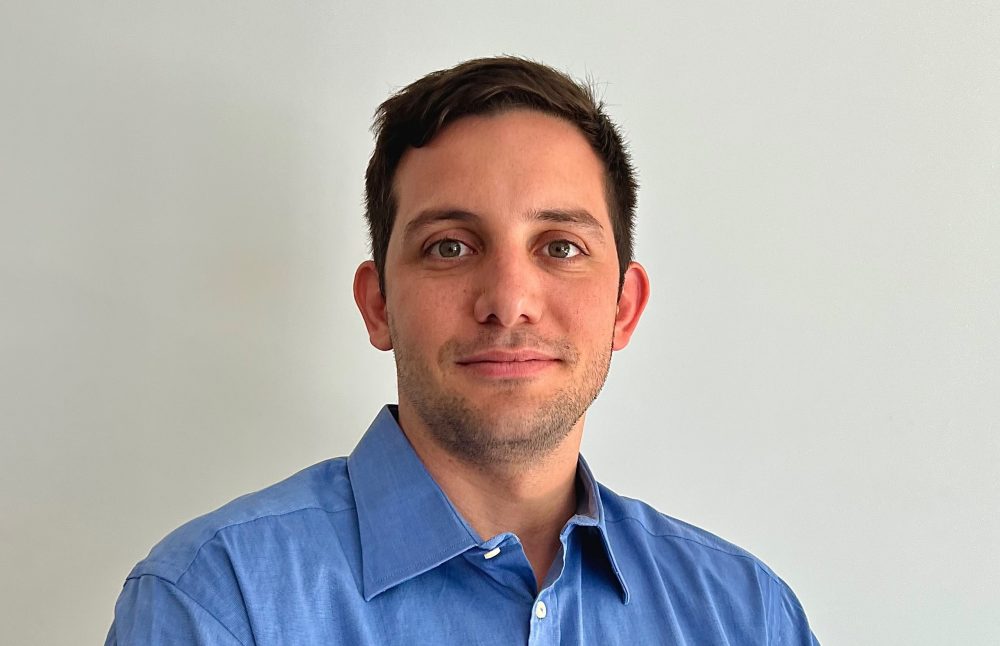As VP of Growth at EuroVPS, I had to make a LOT of decisions, daily. This got exhausting, especially if I had multiple good ideas on how to do something, but wasn’t sure which to choose. Moments like these inspired me to build GrowthMentor. Does this resonate? If so, I’d love to try and help you.
SEO strategy, winning SEO team structure, and hiring & training SEO talent
About this episode
Foti interviews Benji Hyam, Co-Founder of Grow and Convert to unpack the best SEO & content marketing strategies in 2022. Listen to this episode to learn why 'Search Intent' is the most important ranking factor than anything else and how to channel all your efforts to get it right, systematically.
What they talked about:
- How has SEO changed in the last 1-2 years and what direction it has taken for 2022 and beyond?
- Search Intent trumps everything else. How can you incorporate this factor in your SEO strategy?
- How to align your Strategy, Team Structure, Hiring & Training, Content Writing process to serve the Search Intent
- On hiring SEO talent - challenges faced and lessons learned from years of experience running an SEO agency.
Transcript
Foti Panagio: So I’m honored to have Benji him on as a guest. Benji is one of my favorite SEO content marketers on the internet. I’ve been following his stuff since, what was it 2016? And yeah, just a huge fan would love to start chatting, Benji? What’s, what’s going on with SEO in 2022? And how have you seen it evolve over the last couple of years to where it is now?
Benji Hyam: That’s a that’s a good starting question. I think the big difference this year, actually, I think it probably changed over the last year is just how much more intense matters for the ability to rank. So I think probably three or four years ago, I would say most of the Ask SEO community is still talking about backlinks, I think you could generally create an okay piece of content and rank, like, I don’t know, there is that whole phase where we went through listicles. And what we deemed as Mirage content. And the reason we even came up with that term is just because there was so much bad content that was ranking out there. And I think over the last like two to three, four years, there’s really been an evolution to better content ranking. And now it’s really about writing content for the intent of each individual query. And each individual query has a mixture of what type of content ranks and so it’s really about analyzing the SERP. And trying to figure out what is the type of content? Is it like a how to post is it a list? What is Google thinking that the user wants from this query, and then so it’s getting the format, right, and what you’re trying to write, and then it’s also getting that unique expertise into the article that we’re finding, that’s helping people rank. So I would say, and I’ve actually seen a lot of people talk about this recently, it’s less about the technical aspects of like, technical things definitely matter. But if I had to put priorities on what’s driving a majority of the results, now it’s just writing for that individual query. And then making sure that there’s something unique that’s set in there.
Foti Panagio: It’s kind of like marketing has worked its way finally into SEO. Right? The empathy really tries to understand exactly like what what we’re trying to do here with this piece of content and how it can add value to the, to the right person under the right incentives. Right. So it’s a it’s a healthy progression, in my opinion, because now it means that you can actually have some effects without having a huge domain authority or, you know, buildings, scammy little backlinks, and anybody can kind of play if they’re playing the game, right?
Benji Hyam: 100%. And that’s actually one thing that we’ve seen a lot of lately is even companies that have lower domain ratings, competing against companies with high domain ratings, but just writing better content for each of the queries that they’re going after, and being able to outrank some of those sites. And so it’s not just about the authority of the overall site anymore, or how many backlinks that you get to the specific article, it’s more about what’s in the article itself. And so that’s been a big change. And I think it kind of just goes to like, marketers are always trying to take shortcuts, and like, shortcut every piece of the process. I think, going forward, it’ll be not as easy to trick Google and say, You really just need to have a solid process and kind of do the right thing when it comes to content.
Foti Panagio: Yeah, I mean, the whole domain authority, like domain rating domain authority, like they’re just proxy measurements that some company made up basically, right, like this is not Google. Sometimes we get, like, a made up number that we just obsess over and change like, yeah.
Benji Hyam: Exactly.
Foti Panagio: But yeah, I mean, right now, you’re still you’re still running the agency Grow and Convert, right?
Benji Hyam: Yep, correct.
Foti Panagio: So has has that gone? Well, I mean, what are some of the biggest challenges in hiring for you? Is it more of the content writers? Because you wrote a lot about that. Over the last few years, like, is it still is that still a challenge? Or is it more senior roles like SEOs and content strategists?
Benji Hyam: Yeah, I would say the biggest learning on the hiring side has just been how much? Well, I’d say there’s the two learnings in the in the earlier part of the agency. I’d say in the first three years, I don’t think we had the right operational structure. So that was a whole learning experience where we tried to have one editor, edit all these different pieces of content, which ended up having a huge bottleneck challenge. And so the learning from that experience was just to distribute the responsibilities to different members of our team. So now the the model that we have is there’s writers, there’s content strategists, and then everyone starts as a writer. And so everyone has to have that writing skill set. And then the big learning over the last year is just how much needs to go into training. And so I know we were talking a little bit offline just about the challenges of hiring, what we realized, is on to get good writers. We formalized a, like a hiring and testing process this year, which has really helped us find better writers before starting to work with them. So I would say our hiring practices were a little bit looser, and not as formalized going into this year, we did, we would like interview people, we’d give them a test project still, but now we’re very strict on what passes and the test project phase. And then we also extended the test project. So our, our process to hire a writer is there’s an application where someone submits, they submit their writing samples, and then from there, what happens is someone on our team now goes through all the samples, find someone who matches the criteria that we’re looking for. Then we give them a test project. And the test project is just kind of look at this video, and then write down the value props of the product based on what you’re hearing in this video. And we’re just looking for how clear someone is and how and their ability to pull out these value props from it like basically an interview. And it kind of mimics the process that we would actually use in our agency where we would hire a subject matter expert inside of the company. And this person needs to be able to distill the value prompts into the writing. And then from there, if they do well, then they’ll move on to the next stage, which is actually write a full piece. If they don’t do well on that stage, we give them feedback and see how well they can take that feedback and turn it into something that would be workable, and then they’ll move to the next stage. And then from there, we do two other articles that they’ll write. And only then will they become like a writer for us. And so it’s a pretty lengthy process on the front end. But it’s really helped us produce writers that are ready to start working on accounts right after they make it through this process. Whereas before, we would often work with someone for three, four or five months, testing them on real accounts, only to come to the conclusion that they might not be a good fit afterwards. And so this has saved us a lot of time up front. And then the other aspect is then the training to become a content strategist. So if they’ve done writing really well, for like six months or a year, they can choose whether they want to just stick as a writer or move to a strategist. And this past year someone on our team created a whole strategist training manual, where it kind of just walks through everything that you need to know. And then this person would shadow someone as a strategist for three to six months kind of learn all the nuances about communicating with clients and doing the strategy. And then they also have this guide that they can reference any material. And so yeah, I would say the biggest learning over the last year has just been investing heavily into the training side, I think the mistake that we made early on was just hiring someone and kind of assuming they were going to be smart enough to figure it out without as much direction. And it just doesn’t work. And so just really leaning in and spending a lot more time with all of our new hires and just making sure that they have all the material that they need. And then they have help whenever they need it, dealing with any issue and and that has shortened the time to effectiveness for the whole team.
Foti Panagio: I really liked the writing test. And I think it’s an awesome one because it predicates itself on this notion that you’re not just making Google research articles, you’re interviewing subject matter experts, which I see as a huge trend. Even with SAAS companies. What they’re doing a lot of lot of companies are are just interviewing other people and either their clients or their ICPs and creating content that quite honestly could never really be matched by just hiring a freelancer. Right so getting somebody to watch when you said a video I’m assuming you’re talking about like a video interview with somebody, right? Kind of like distilling that.
Benji Hyam: Yeah, video interview or product demo for a product demo would work well too. But we’ve used this this kind of testing process for a number of different roles. Like even when we were hiring someone to do all of our paid ads, it was giving them a real situation, and trying to see how people think about solving it just a real situation. On the ad side, say you’re working with this type of budget, these were the goals you’re trying to hit. How would you think about solving this problem? So I think you can steal this test process for different types of roles, not only just the writing side, but but really what what I’ve realized is that interviews, traditional interviews, only tell so much about a candidate, but you want to, you want to really be able to see how someone thinks about strategy and execution prior to getting them in the role. And so giving them smaller test projects that kind of mimic exactly what they would be doing in the role is a better predictor of success in my opinion.
Foti Panagio: I 100% agree, I recently hired somebody first full time marketer hire and one of the one of the parts of the interview process was, hey, let’s do a screen share and just jump into Google Analytics. And walk me through what you want to look at first, and give me some real time insights on some of the data that we’re looking at. Right, I want to kind of see how the gears turning in their ads, right in real time. So I, I’m curious about your perspective, changing gears a little bit, I’m sure on, on on content at scale, right, like publishing velocity as a ranking factor. There’s a lot of people talking about people that I respect as well in the SEO field. And I just feel like it’s a little bit divergent from your general train of thought. All right, well, less is more, let’s focus on the pain point really thorough piece of content, like how does publishing velocity reconciled with your general like idea of content creation?
Benji Hyam: Yeah, I don’t, I don’t know if it says much publishing and velocity is it is topical authority. And so we do see. So I’ll give you an example, if we’re working with a new client that hasn’t been publishing at all on their blog, or maybe they haven’t been publishing on the topics that they need to. So for example, their their content is more top of funnel, they’re going after all different types of categories than when we first start working with them. It is kind of an uphill battle to get the content to rank for these very specific keywords, because their site isn’t seen as an authority on the subject yet, however, then once we start publishing, consistently, on whatever topic it is, once there’s enough content on this more specific topic, over time, it becomes easier to rank for that topic. And so I don’t necessarily think it’s about publishing a certain amount in, let’s say, a specific timeframe. But I would say it’s more about publishing consistently, on a specific topic that helps the rankings. And so that it is definitely something that we’ve noticed is, and I think it kind of ties into our strategy of like pain point SEO and being more specific and what you write because if you’re writing, let’s say, a ton of content on a CRM, and all your content is related to I don’t know how to do different things in a CRM, the use cases, all that kind of stuff, as opposed to just general sales stuff, then I think you’re more likely to rank if you’re staying focused on the CRM stuff, as opposed to going broad and talking about just general sales and marketing trends and stuff like that. And so, yeah, that’s pretty much what we’re seeing right now.
Foti Panagio: So you you choose a topic that has some relation, I guess, to the bottom of funnel goal of the client, right? You start with as much specificity as possible, because that will increase the chances that we’re going to rank on page one of the SERPs. Hit that and then slowly sort of diverge.
Benji Hyam: And then then broaden out. Exactly.
Foti Panagio: And broaden out. Yeah.
Benji Hyam: Yeah. So we, we flipped the funnel when it comes to strategy where we’re focusing on the highest buying intent keywords first, which are typically the most specific, buying keywords and typically represent whatever you sell the most. And so it would be like, I don’t know, accounting software for small businesses and writing everything around accounting software, all the different synonyms that we can find and then broadening out from there.
Foti Panagio: Yeah, I recently read the blog post today. I was just doing research with a podcast so I saw you posted one about how to do keyword research with the, with the sort of format, where you have middle of funnel, you reserved some spots there for the checklist and the templates which have loads of volume. But then you also find put this in the examples. And I really liked how you interwove the products within the actual piece of content as well, right? Because I see that a lot people are ranking like, I’ve done this a lot of times as well, or, you know, I have a piece of content that gets a couple of 1000 visits a month, but zero conversions. And it’s like, well, you know, what, there’s what? It’s obvious, there’s zero conversions, no mention of the product whatsoever?
Benji Hyam: Yeah. That’s, that’s gonna, a key topic that a lot of people bring up is that they don’t want to sell in their content. And it kind of makes sense. Like, I get that you want to add value first and educate people. But oftentimes, like if someone is searching for small business accounting software, and you come across a list of all the different pieces of software that you can use, like it may it makes sense to sell yourself against all the competitors, and say, here’s why we built the product. Here’s why it’s better than these different options. And I think the reader actually appreciates that and it helps from a conversion perspective. And so we try to leave either a use case of the product or the sales pitch of the product and every single piece that we write, and that definitely helps on the conversion side.
Foti Panagio: Another thing I think is really important which you’ve also touched upon a couple of times as well. It’s just this adding this this element of uniqueness to everything that you write about. Right. Can you speak a little bit to that? Like how you approach that?
Benji Hyam: Yeah, well, we approach it through doing interviews with subject matter experts inside of the company. But I would say it all starts with the company, either having strong positioning or being able to articulate their value props well, and so that’s something that we actually test not test for, but we try to weed out in the sales process companies that have some strong differentiators or uniqueness compared to everyone else on the market. Sometimes it can be weaker, it can be just price, or it can be specific features. Or it can be just the way that they think about the industry different or it can be the story of the founding story. But we try to weave those elements into each of the blog posts to really differentiate the product or the service against any of the other competitors. And I think yeah, I think that’s really important. If you look at the SERPs, oftentimes, what happens, especially if you’re in a super commoditized category is all the content and all the best practices and everything seems the same. And I think it’s important to have some sort of uniqueness or a different way to think about solving the problem that the reader can take away from each of the blog posts.
Foti Panagio: Yeah, I there’s a in the sea of sameness. I mean, it’s really isn’t that difficult to differentiate, just open all the first page results in a new tab. Quick skim, right, and just kind of see, let your creativity do the rest. Right?
Benji Hyam: Yeah, we had we have this webinar with Bernardo clear scope last week. And for the for the presentation, David looked up a keyword. And I think he went through like the first 10 or so blog posts. And it was like some blog posts it was like a keyword about best practices. And every, I think three of the blog posts have the same exact best practices, just slightly reworded. And if you just think about that, how did that happen? Or someone created the blog post first, and then someone else read this blog post and use those same best practices to then go right in their article. And then the same thing happens over and over again. So yeah, I think, again, it stems from the process that most people use to produce content is often just hiring a freelancer and then having them do research on their own, versus talking to people on side of the company and conducting these interviews with the subject matter experts and taking their expertise and putting it into the articles as opposed to doing the research on your own. I think you can clearly tell when an article is written by someone who’s done the self research, because oftentimes, a lot of the information is regurgitated and it’s not unique. And so by taking representatives inside of the company, who have a ton of knowledge about the product, so that they can sell the product, the unique competitive advantages and that kind of stuff, and they understand the industry and maybe the weaknesses of other competitors or how to think about things differently. That’s how you get that uniqueness and people content.
Foti Panagio: Yeah I totally recreate creating, creating content like that. Who, what’s the best role for that? Is that Is that really a freelance writer that can do that? Or is let’s say, for example, hypothetically, we interviewed the founder or a product manager out of stock, right? We got to their story or their take on a particular topic. Who takes that recording? And then turns that into a piece of content? And what’s the process there? Because I feel like that’s, that’s kind of a tricky process. I’ve tried delegating that and it’s, it’s pretty tough.
Benji Hyam: Yeah, it is the writer who does that. And I would say, it’s not the person, it’s more of the process. That’s, that’s the challenge. So our process that we use is, let’s say, we’re gonna go after a keyword, what we do first is go to the search result and try to dissect what type of content is ranking more often than not? So that’s kind of what I was referring to earlier, is a majority of what’s here, product pages, list posts, how to’s, opinion articles, what is Google serving up? And so let’s say four out of the 10, or six out of the 10 search results are how to use, that tells us that we probably need to write about how to get this article to rank. From there, we would click into the articles, see what are the headlines that people are writing? So what are the sections that are important, we would look at the questions people may ask in the search results. Also the related searches at the bottom and just try to back into what is Google thinking the intent of this keyword is? And what are those important sections that we need to have in the article? From there with all that knowledge, we use a questionnaire which is essentially just an outline. It’s our own version of like getting to that outline stage that ask questions like, What do you think the searcher is trying to learn by searching this? And we have the writer fill this out? What are the key sections that need to be included based on the search results? Then we come to the interview prepared with all this, this outline to then fill in the gaps. And so the questions are then based from the search or the SERP. So that we can get all the information that we needed to then fill in the sections and and answer the the intent of the query that we’re going after. And so then from there, we interview the person. And then we transcribe it using otter, just or any transcription service. And then from there, the architecture of the article is pretty much already done, just from all that initial research. And then it’s really just about writing in the voice of the client, and just making sure everything is in the blog post that’s needed to be in there. That’s kind of a process that we need.
Foti Panagio: Tosummarize your process. You basically write the outline first, you do your requisite sort of keyword research and you know, investigating the SERPs and all that sort of Sherlock Holmes stuff. And then when you’re doing the interview, you’re essentially just asking the questions in the order of the blog posts that you ultimately want to publish. Right?
Benji Hyam: Yep, exactly.
Foti Panagio: I mean, it and kind of, you know, filling in the blanks and then doing the editing process.
Benji Hyam: Yep, exactly. Yeah, you get all the detail filled in that way. So you have you have certain sections that you know, need to be answered certain questions, you know, need to be answered. And so yeah, you just kind of walk through the list and just make sure you have everything answered that needs to go in the blog post.
Foti Panagio: You know, a 20-minute conversation interview can get you how many words on a blog post, roughly.
Benji Hyam: I mean, pretty, it can get you pretty far, if you’ve done all this initial research, I think, historically, we did the opposite, where we would go into the interview, and then try to back into the keyword stuff afterwards. And I think that’s when there’s a lot of holes in the details. And you need longer interviews. But I think if you come in prepared and do this research upfront, you can get very pointed questions, and the interview process can go much faster. That’s why and so I would say, yeah, if you’re doing the interview, and you’re not doing this research upfront, try doing the research upfront. And that should save you a ton of time on the back end and editing process.
Foti Panagio: Yeah, that’s that’s huge. I mean, for me, that’s like the biggest sort of key takeaway from from this podcast episode for me personally, because we’re in the process of creating content using this interview based format with a mentor.
Benji Hyam: Yeah, we actually just wrote a an article too. So if you haven’t read it yet, I’d recommend reading the SEO content writing one. But we give our whole process of exactly what we do, and kind of walk through examples of each of the steps.
Foti Panagio: I have a question Do you have a job board within your community?
Benji Hyam: It’s something that we’re in the process of thinking through and creating right now.
Foti Panagio: I mean that would be really cool. Like if people could hire marketers, writers that kind of think like, you know, understand the process.
Benji Hyam: Yeah, we have some thing coming soon on this whole concept. But yeah, the goal going forward of the course is to be able to predictably produce strategists and writers that are, that know our process well, so that companies can hire them, whether it’s us, and we find great writers or great talent through our own community after they’ve gone through the training, or if it’s other people who can’t afford our agency who want to hire freelancers, that know our process.
Foti Panagio: Can be launched that hit me up, let me know, I’m happy to share the word and I might actually use that.
Benji Hyam: Yeah, of course, happy too.
Foti Panagio: So what’s what’s the future hold for you in 2022? We’re just we’re just getting started with this year. I mean, what are you what are your sort of like longer term aspirations?
Benji Hyam: Yeah. So on the agency side, we’re really just trying to keep growing our so I think it’s continue to get better at hiring, continue to get better at training. And then just kind of see where we can take the agency, we don’t really have any goals around revenue or number of clients or anything like that. It’s kind of just solve solve the problems as they arise and see how far we can take that on the course side. someone on our team has actually taken over managing the sales and the management of the course. And so we’re kind of rethinking how to make the course, more valuable to people how to make sure that people that sign up, actually go through the course and take it and then again, how can we is there a way that we can more predictably produce great talent that that has gone through the course and how can they do certain exercises that kind of proves that they understand the information in there. So we’re rethinking a lot of this right now. And hopefully, we’ll have a new version or just some improvements to the course coming in the next month or two.
Foti Panagio: Sounds exciting, Benji, that’s a good chance for us to kind of wrap it up here. It’s been awesome chatting and once again. Yeah, we’ll, we’ll post this in. Awesome.
Benji Hyam: Alright.
In this episode


I live in San Diego, California and I’m the co-founder of Grow and Convert (a content marketing agency). I also co-founded the SaaS app Wordable.io (which was acquired in Nov 2017). Previously, I lived in San Francisco for two years where I ran marketing for two different venture-backed startups – Everwise and Thinkapps.
Join the community
Enjoy the peace of mind that advice is always only one Zoom call away.



